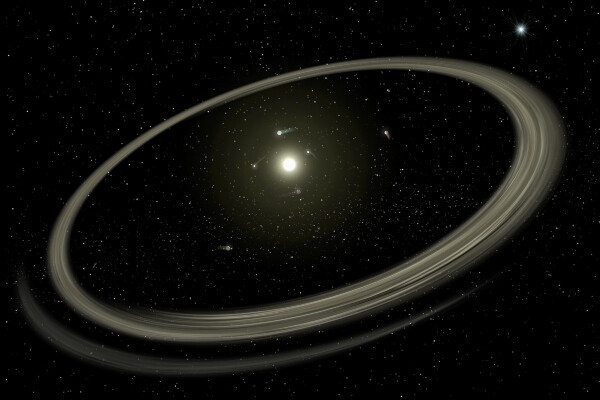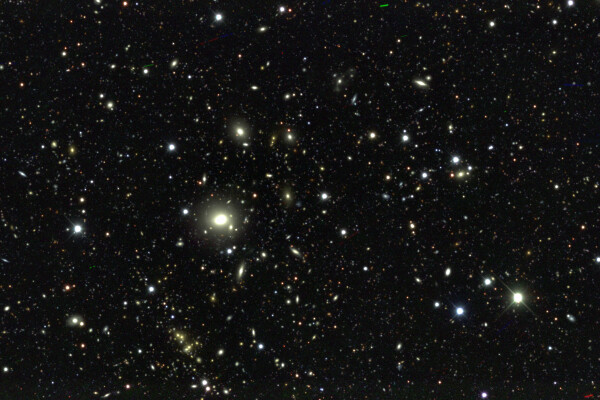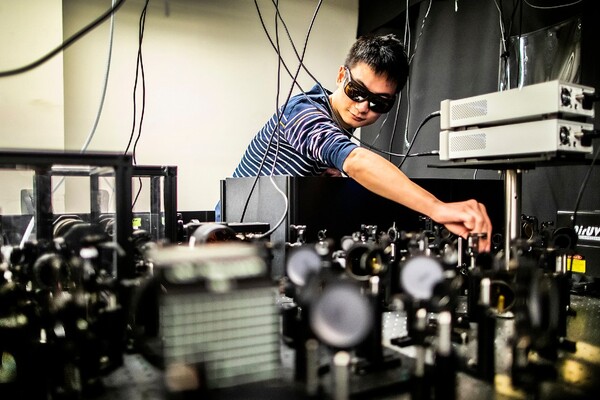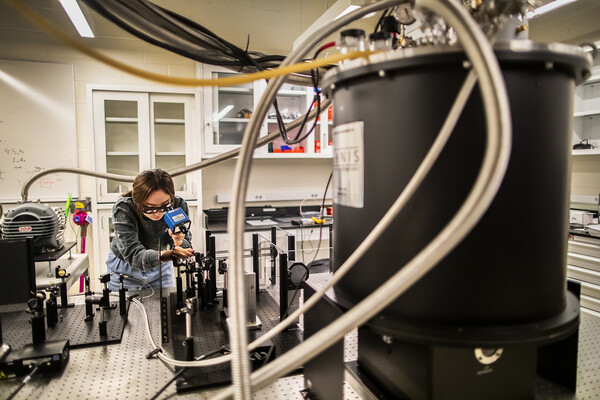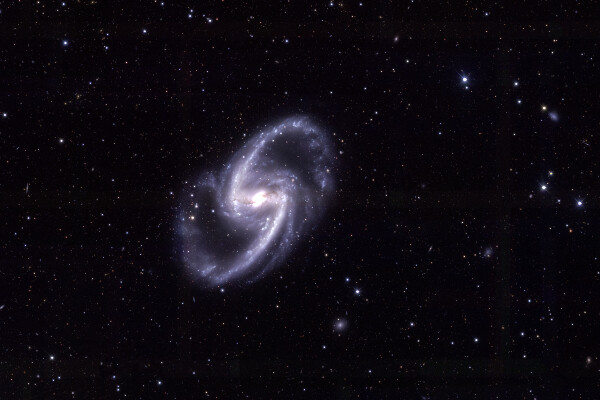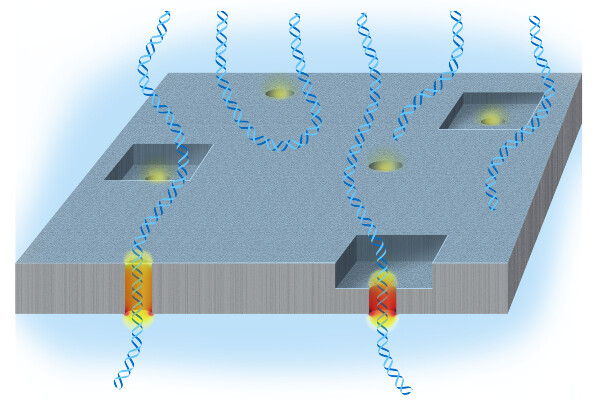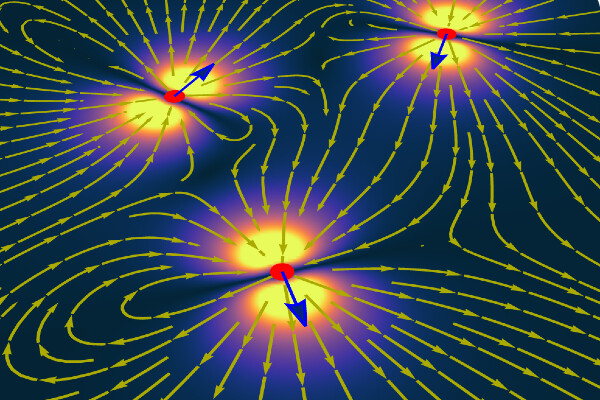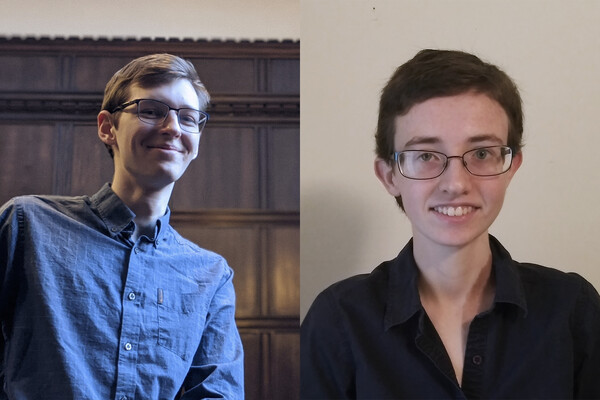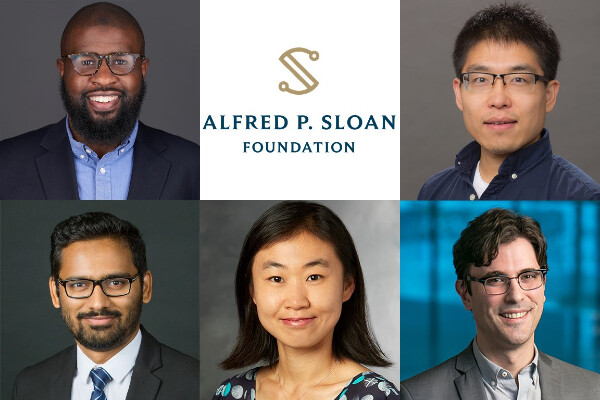4/16
Physics
Shifting sands, creeping soils, and a new understanding of landscape evolution
New experiments show that, even when undisturbed, piles of sand grains are in constant motion, challenging theories of how soils and other types of disordered materials behave.
Connecting a star’s chemical composition and planet formation
Along with developing a new statistical method for studying exoplanets, researchers from Penn found that the majority of stars in their dataset are similar to the sun, implying that many stars in the Milky Way could host their own Earthlike planets.
Dark Energy Survey interim analysis sheds light on the evolution of the universe
Analysis of the survey’s first three years of data, which were used to make the most precise 3D map of the universe to date, is a key step towards understanding dark matter and dark energy.
Insights into new ‘dials’ for controlling a material’s magnetism
New research demonstrates how small amounts of strain can be used to control a material’s properties, with possible applications ranging from spintronic devices to faster hard drives.
Beyond topological insulators
Charlie Kane and Eugene Mele’s groundbreaking theories on the existence of a new class of materials continues to inspire an upcoming generation of physics researchers.
27 million galaxy morphologies quantified and cataloged with the help of machine learning
Using data from the Dark Energy Survey, researchers from the Department of Physics & Astronomy produced the largest catalog of galaxy morphology classifications to date.
Developing a new platform for DNA sequencing
Research from the lab of Marija Drndić in the School of Arts & Sciences shows how solid state materials can be developed for large-scale automated sequencing by incorporating state-of-the-art fabrication and analytics.
How cells transport molecules with ‘active carpets’
New research provides insights into the process of diffusion in living systems, with implications from novel active coatings to understanding how pathogens are cleared from lungs.
Two Churchill Scholars for Penn
Adam Konkol and Abigail Timmel have each been awarded Churchill Scholarships for a year of graduate research study at the University of Cambridge in England. Konkol and Timmel are among only 16 who were selected nationwide.
Five Penn faculty named 2021 Sloan Research Fellows
The fellowship recognizes extraordinary U.S. and Canadian researchers whose creativity, innovation, and research accomplishments make them stand out as the next generation of scientific leaders.
In the News
Scientists propose ‘missing’ law for the evolution of everything in the universe
Stuart Kauffman of the Perelman School of Medicine comments on a study that proposed a missing scientific law identifying “universal concepts of selection” that drive evolution.
FULL STORY →
Russia aims to restore prestige in race to moon’s south pole
Benjamin L. Schmitt of the School of Arts & Sciences and the Weitzman School of Design says that sentiment in the scientific and astronaut communities has begun to shift toward a future in which NASA and Roscosmos are no longer close partners.
FULL STORY →
Nine women who changed science are featured in a new Philly exhibit
A new exhibit at the American Philosophical Society in Philadelphia celebrates the late Mildred Cohn, a biochemist at the Perelman School of Medicine who fought to reduce discrimination in academia.
FULL STORY →
Neuroscience explains why Bill Gates’ weird reading trick is so effective
A study by Penn researchers working in physics, neuroscience, and bioengineering found that people instinctively seek patterns and similarities in the data they absorb.
FULL STORY →
UK joins international effort to uncover first moments of the universe
In a statement for the Simons Observatory, Mark Devlin of the School of Arts & Sciences says that new telescopes and researchers from the UK will make a significant addition to their efforts to examine the origins of the universe.
FULL STORY →
Liquid crystals bring robotics to the microscale
In collaboration with the University of Ljubljana, Kathleen Stebe of the School of Engineering and Applied Science has built a swimming microrobot that paddles by rotating liquid crystal molecules.
FULL STORY →





